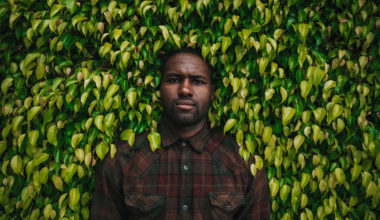Coming out is the process of acknowledging both internally and socially that you are LGBTQ.
Unfortunately, we live in a world in which “coming out” is still demanded of LGBTQ folks, as heterosexuality is seen as the default (read: normal) sexuality. As a result, we often push people to come out, especially publicly.
Let’s explore some of the nuances of coming out, and how this important step in an LGBTQ individual’s life can be both beneficial and challenging.
LGBTQIA+ affirmative therapy can help.
Looking for a LGBTQIA+ affirmative therapist? Find an experienced therapist
Benefits of Coming Out as LGBTQ
There are, of course, many benefits to coming out as LGBTQ. Chief among them is reduced anxious and depressive symptoms exacerbated by the process of hiding — or living — two lives.
To say that coming out is the lifting of a heavy burden is an incredible understatement. This idea of psychological ease and relief after coming out is also been backed by research. LGBTQ people who are out face lower stress markers, anxiety, and depressive symptoms than their queer counterparts who are not yet out.
Benefits of coming out may include:
- Reduced stress or anxiety
- Finding community with others who are similar
- Deepening of relationships (friendships, family, etc.)
- Ability to find more potential romantic or sexual partners
- Increased self-esteem
The process of healing doesn’t end there, however, despite what many people think. Coming out is seen as the end of a healing process, when in reality it’s just the beginning of one.
Coming Out is a Continuous Process
Telling people that you are LGBTQ is freeing. Stepping out in the light for the first time, when you’ve lived in the shadows for so long, brings about an incredible sense of peace.
It also brings about a lot of responsibility. Coming out is a never-ending process. Often, LGBTQ people have to come out many times throughout their lifetimes as the enter new environments. Given that, you can see why the first declaration is just the beginning of a lifelong process.
Being “out” doesn’t mean that anxiety or fear of negative reactions to you goes away. For many, this continues (albeit with less intensity) over time. While hopefully you are accepted by the main players in your life, as an LGBTQ person you also have to consider how bosses, new coworkers, and new friends — and friends of friends — might react to this piece of your identity. You never know if they’ll hate queer folks or have misinformed views which tend to leak out into everyday conversations.
As an LGBTQ person, this means that you might have to walk into many uncomfortable situations throughout life, not knowing if you will be welcomed with open arms because of your queerness. Nervousness when around new people or groups is common, and can be difficult territory even for people who have long made peace with their queer identity. This worry can be extremely difficult, especially if you already deal with anxiety or depression related issues.
Institutional Challenges After Coming Out
While coming out can help a LGBTQ identified person finally feel a sense of relief, it also brings about new potential challenges, most notably for trans or gender non-conforming folks. I’d like to think that we are on the precipice of a cultural shift in which transgender and gender nonconforming people are gaining more mainstream acceptance. However, we still have plenty of work to do.
Many out LGBTQ people face quality of life issues that have little to do with internal acceptance.
Discriminatory Laws Against the LGBTQ Community Still Exist
Only about half the states in America have laws that protect against any kind of LGBTQ discrimination in employment. And most of the states that do have some protections, are solely for anti-discrimination against LGB folks, leaving transgender people incredibly vulnerable to employment discrimination.
This contributes greatly to the issues of underemployment and poverty in these communities. There are similar trends in other main areas of life such as housing, public accommodations, access to healthcare and other benefits, etc.
This means that until a culture is completely accepting and celebratory of LGBTQ people there will be not only individual, but institutional challenges to face. Coming out, as a process, is incredibly helpful to the health and well-being of queer folks. However, legal and social circumstances may continue to complicate the picture for queer folks, which can be additionally complicated by their visibility.
Seeking Support and Comfort as the Antidote to Ongoing Challenges
LGBTQ folks need ongoing support after coming out to lead healthier lives, both physically and psychologically. Friends, accepting family members, and local community support spaces serve as beacons for the visibly out and not-out alike.
According to the National Alliance on Mental Illness, LGBTQ people are 3 times more likely than straight counterparts to experience mental health issues like depression or anxiety disorders. Finding and building a community of support can be life-saving. Often that comes with coming out to one’s self first, and then sharing that truth with others around you.
Talkspace articles are written by experienced mental health-wellness contributors; they are grounded in scientific research and evidence-based practices. Articles are extensively reviewed by our team of clinical experts (therapists and psychiatrists of various specialties) to ensure content is accurate and on par with current industry standards.
Our goal at Talkspace is to provide the most up-to-date, valuable, and objective information on mental health-related topics in order to help readers make informed decisions.
Articles contain trusted third-party sources that are either directly linked to in the text or listed at the bottom to take readers directly to the source.




